Arístides Vera walks confidently through the disorientating, overcrowded passages of the Tacumbú prison, Paraguay’s largest jail. Along the way, the greying, powerfully built man is frequently stopped by the warm handshakes and embraces of fellow prisoners, who enthusiastically greet him.
On reaching the courtyard in which he runs a small canteen—everything must be bought and sold in Tacumbú—Vera unlocks the door to the tiny room where he lives. He makes his way in. Seconds later, amid phrases in Guaraní—official language of Paraguay alongside Spanish—three other men pile in: Agustín Acosta, Simeón Bordón and Basiliano Cardozo.
The four men perched on the bed form part of a group of six campesino (small-scale farmer) movement leaders from across Paraguay serving 25-year sentences in Tacumbú, with a further 10 years added for “security measures.”
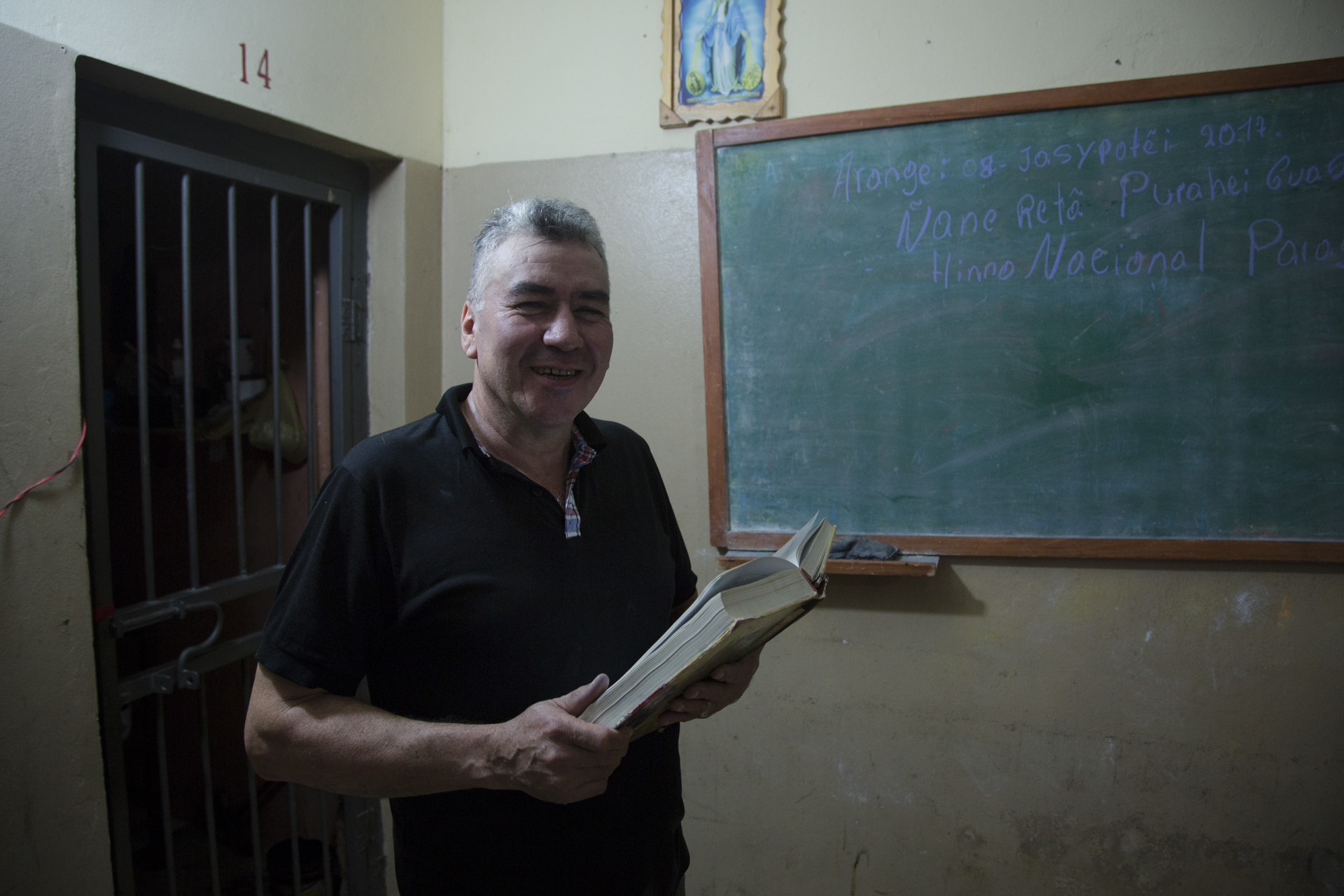
Alongside Gustavo Lezcano and Roque Rodríguez, the two members of the group that are not present, these men were convicted for alleged participation in a crime that shook Paraguay: the 2004-2005 kidnap and murder of Cecilia Cubas, daughter of the country’s former president Raúl Cubas Grau (1998-1999).
Since their detention in May 2006, the social-movement leaders have rigorously maintained their innocence.
“They didn’t find one piece of proof against us. They just made up witnesses, evidence and extradition orders,” Vera told Toward Freedom in an interview inside the jail.
The three other leaders in the cell nod in silent agreement. They listen attentively and raise their hands before speaking with carefully chosen words.
“This is a political sentence,” Vera continued. “It’s meant to serve as an example to others; to stop them from working to teach people about the reality of this country as we did.”
Important human rights organizations stand firmly behind the six men, who claim that they are political prisoners who have seen their most basic rights trampled upon.
A Tale of Injustice
Cecilia Cubas was abducted from near her home on the outskirts of Asunción, Paraguay’s capital, in September 2004. Following months of sporadic communication between her captors and her family—and a seemingly failed ransom negotiation—her body was found buried at a house near the capital in February 2005.
Immediately following the discovery of her body, then President Nicanor Duarte Frutos, of the right-wing Colorado Party (ANR) declared that members of Patria Libre (PPL), a leftist political party, were responsible for the crime.
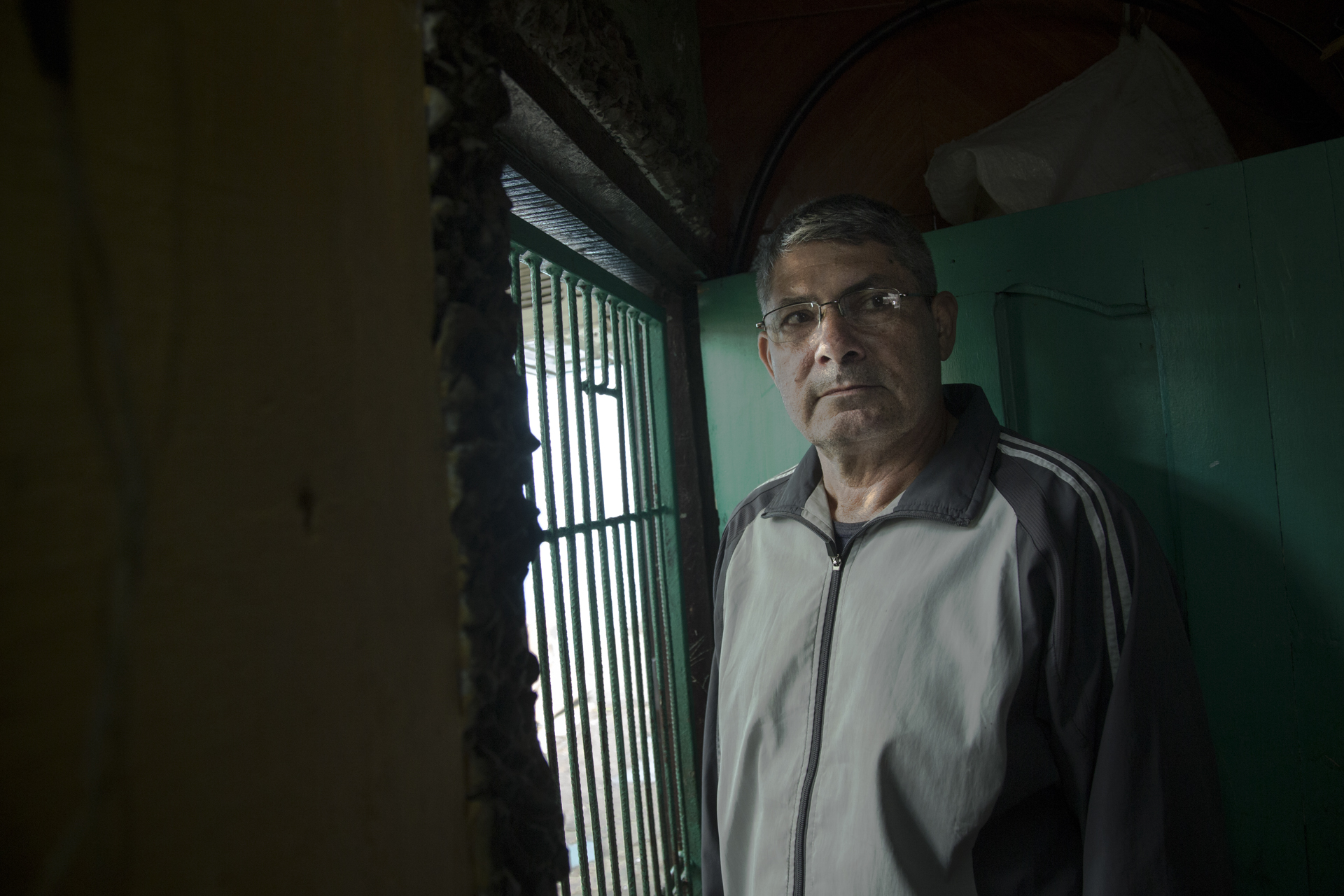
“Wherever they are, they will soon be judged and sentenced,” said Duarte Frutos at the time.
The PPL came under intense scrutiny from authorities and charges were brought against party leaders. This included the six campesinos now in Tacumbú, who—except Roque Rodríguez—were all PPL members. Rodríguez, who like the others was a leader within Paraguay’s small-scale farmers’ movement, never formed part of PPL.
The public prosecutor’s office asserted that the campesinos had been present during a PPL meeting in which Cubas’ fate was allegedly decided. This accusation rests solely on the testimony of a paid informant.
According to lawyer Óscar Ayala, executive secretary of the Paraguayan Human Rights Coordination Group (CODEHUPY), this evidence was highly unreliable and insufficient.
“At different times during the trial and when speaking to the press, the witness gave contradictory statements about what had happened,” said Alaya. “In addition, he’s an informant paid by the police, by the state. No court of law should have been able to convict a person based on his statement alone without verifying it against other testimonies or other types of proof.”
The Six, as the group is known, were initially accused of failing to report the abduction and murder of Cubas to authorities. The case presented against was so weak that when they were first charged that a judge refused to have them held in custody.
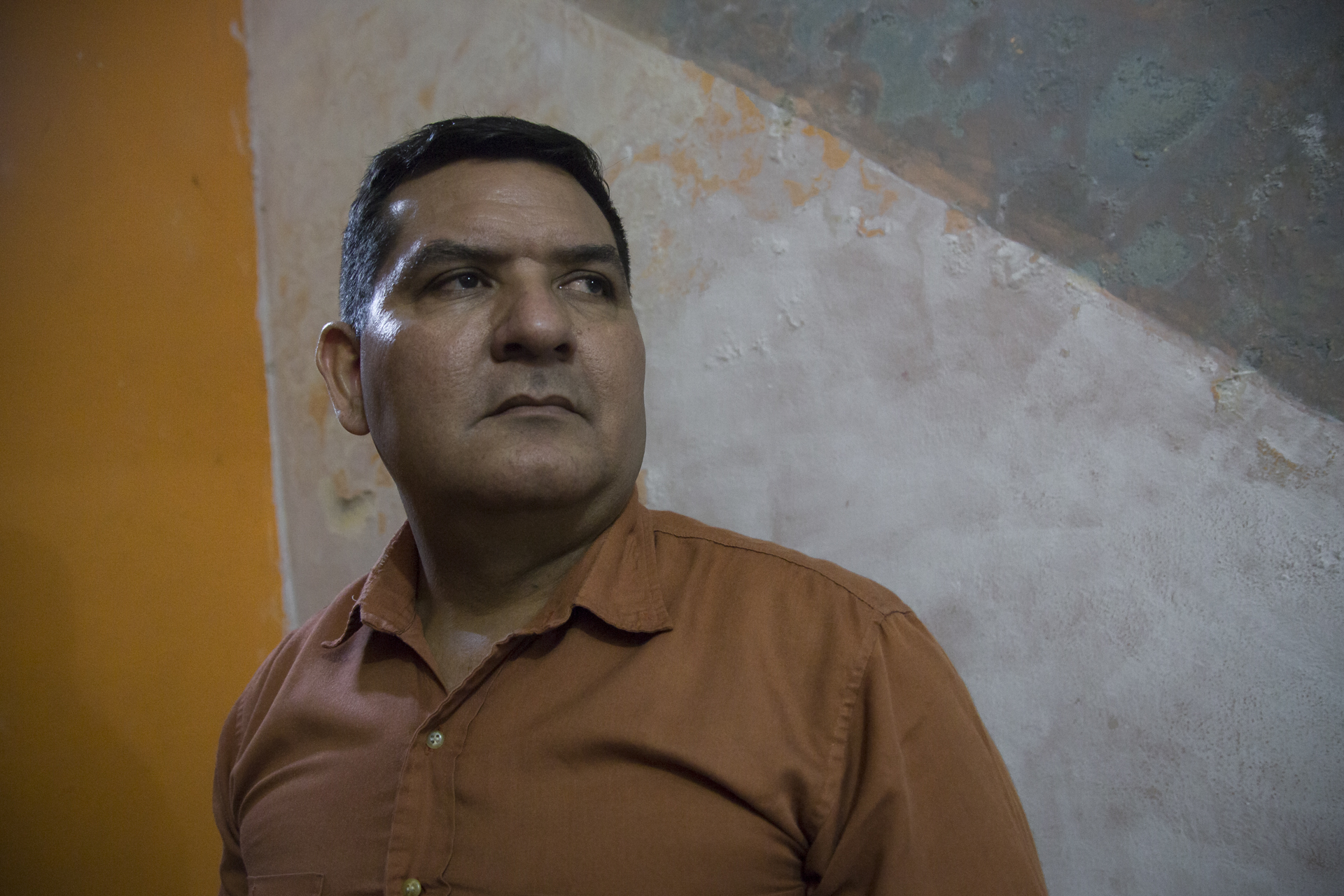
Despite this decision, the public prosecutor later inexplicably modified the charges against The Six to murder, kidnap and criminal association. Even though no further evidence was presented to justify this change—rendering it entirely illegal—this new charges were admitted by a court of appeal.
This bizarre court decision is just one example of how the independence and impartiality of the justice system were severely compromised in the case of The Six, according to Ayala.
“You can see how political actors have exerted a strong influence on the judicial branch in order to obtain certain decisions,” the human rights activist told Toward Freedom.
This unjust treatment was in line with Duarte Frutos’ intention of eliminating the PPL: the president went on to promise to annihilate the organization’s remnants.
Today, the PPL has disappeared as a political force. It is most often referenced in the Paraguayan press due to alleged connections between some of its former members and the Paraguayan People’s Army (EPP), a leftist guerrilla movement operating in the north-east of the country.
Asylum, Hunger and Extradition
In the face of this arbitrary violation of rights by the Paraguayan state —and fearing for their lives after receiving death threats— The Six acted on advice from the Argentinian ambassador in Asunción and travelled to Buenos Aires in March 2006 to claim political asylum.
But their asylum request was denied, and the men were imprisoned under an international arrest warrant requested by the Paraguayan government.
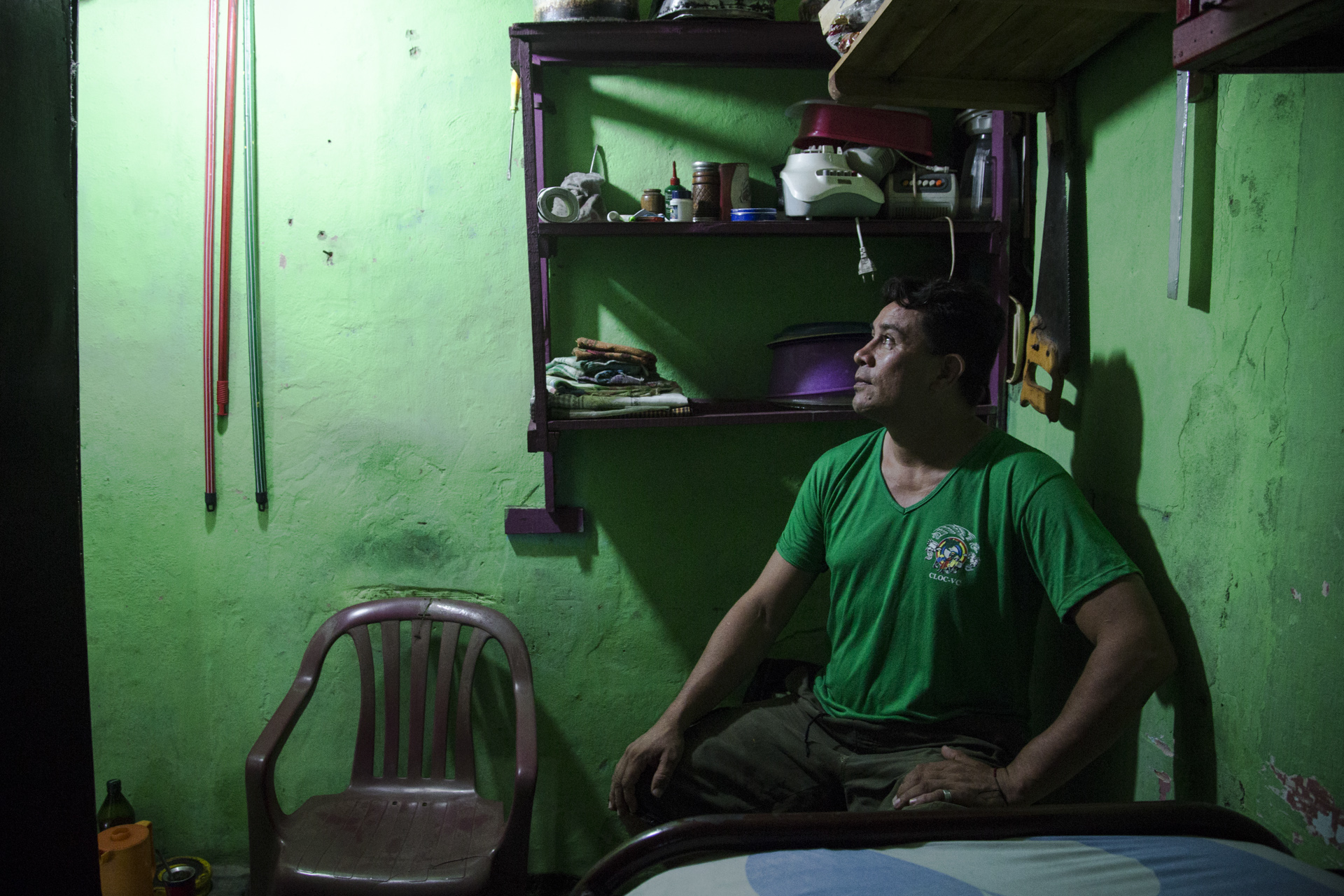
A two-and-a-half-year battle followed to fight extradition back to Paraguay. Despite receiving emphatic support from numerous Argentinian social and political organizations, including three Nobel Prize laureates—Adolfo Pérez Esquivel, Rigoberta Menchú and Jose Saramago—and carrying out a 68-day hunger strike, their extradition was approved in October 2008 under strong pressure from the Paraguayan government.
The Six’s fears of being denied a fair trial in Paraguay were justified. CODEHUPY calculates that at least 42 articles of Paraguay’s criminal code, the Constitution and several international treaties were violated during their imprisonment and trial.
For example, they were made to wait until July 2012 for a trial, violating Paraguayan law, which states that prisoners cannot be held for more than five years without a sentence. The Paraguayan justice system refused to recognize the time The Six spent in prison in Argentina, despite this being emphasized by the Argentinian judge who signed their extradition.
When the trial finally began, they were denied the chance to present evidence in their defence. The many witnesses that contradicted the prosecution’s lone paid witness were not considered.
Furthermore, the written record of the court hearing refers to information contained in the sentences. CODEHUPY claims that this demonstrates that the sentences had been written before the trial even began. As such, the right to presumption of innocence was totally ignored.
For Vera, the violence with which the state has treated him and his five companions is a clear indication of their innocence:
“If we are guilty of murder, kidnap and burying the body, why don’t they sentence us in accordance with the law? Why have they resorted to dubious arguments and to violating our rights?” he asked.
Demonizing the Struggle
In Vera’s tiny cell in Tacumbú, the prisoners, now 13 years behind bars, are unwavering in their insistence that they were targeted by the state because of their political and social activism.
Paraguay, which remains a strongly agricultural nation, has the most unequal land distribution in the world according to the World Bank. At least 85 per cent of agricultural land is controlled by just 2.5 per cent of land owners. This skewed distribution is largely a result of corruption within government and state policies that have favored the accumulation of land for commercial agriculture.
Small-scale farmer families —who typically plant crops such as beans, corn and cassava and have small numbers of livestock— are continuously squeezed off their land by the ever-expanding commercial sector and forced into urban poverty belts.
Within this context, fighting for campesino rights is a dangerous occupation.
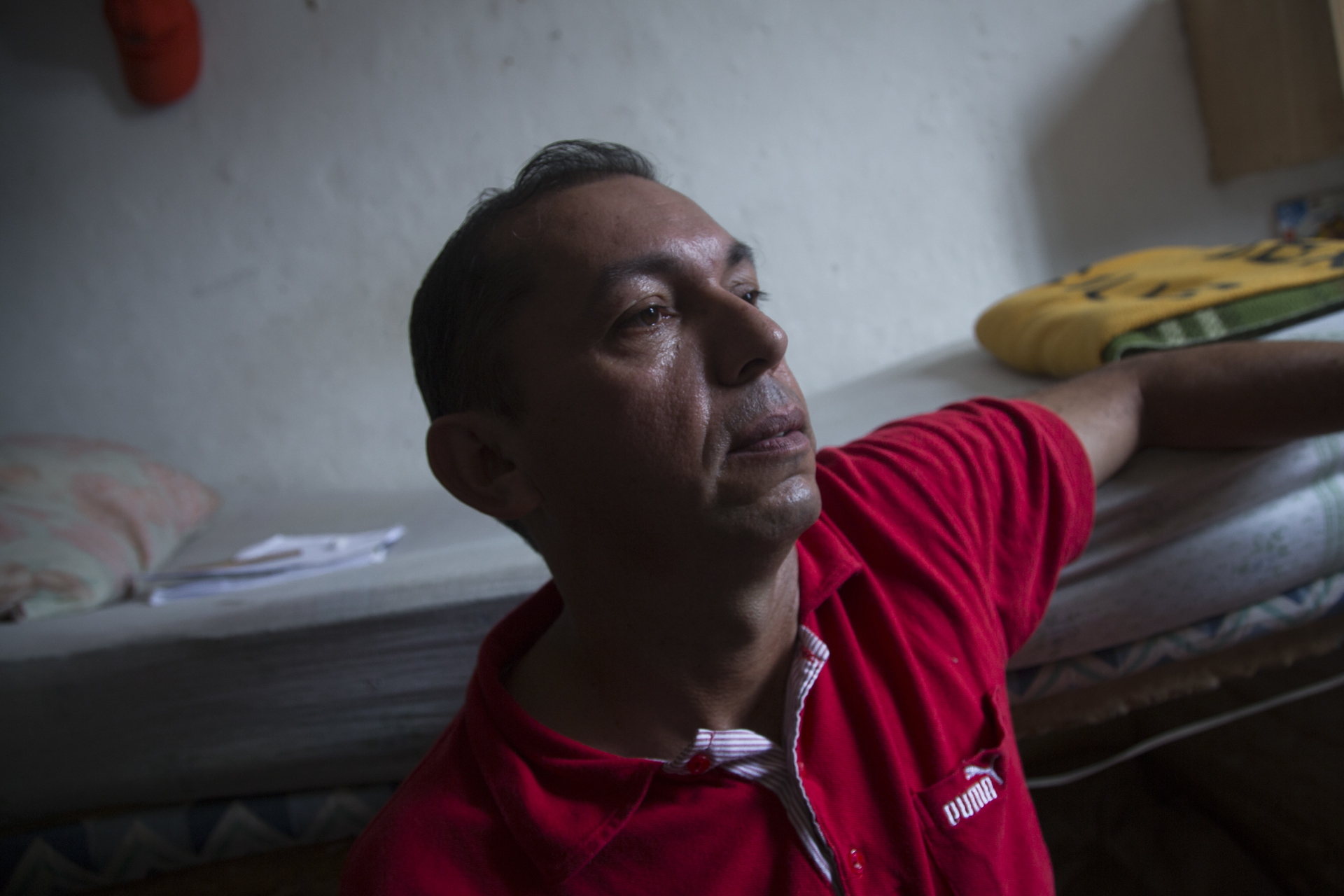
“Our biggest sin was to educate campesinos about the reality of our country,” said Agustín Acosta.
The Six are not the only leaders to have been persecuted because of their activism. It is estimated that at least 122 campesino leaders were murdered in Paraguay from 1989 to 2018.
“They imprisoned us in order to demonize the work of the campesino sector, which at that moment in time was booming,” said Acosta.
Perla Álvarez, a leader of the Organization of Rural and Indigenous Women (CONAMURI), agrees.
“Their punishment is a message to all members of the working class looking to get organized and dispute changing society through politics,” she said. “The kidnap and murder of Cecilia Cubas was used as an excuse to modify laws that have allowed for greater repression of the campesino movement in particular and of the poor and working-class sector in general.”
The intensified repression and criminalization of the campesino movement has been marked in Paraguay in the years since the death of Cubas.
For example, in a trial described by the UN as “highly troubling”, 11 small-scale farmers were convicted in 2016 of the murder of six police officers during the Curuguaty Massacre. This 2012 clash between police and campesinos, which led to the overthrow of progressive president Fernando Lugo, also cost the lives of 11 campesinos. The deaths of peasants were never properly investigated by the state. The political prisoners were eventually released in 2018.
The Paraguayan press, which is strongly linked to the political and landowning class, is increasingly filled with articles stigmatizing attempts by campesinos to recover land and celebrating the excessive use of force by authorities.
While these measures have indeed notably weakened the campesino movement in recent years, Álvarez says the organizations that make up the movement “have not lost hope and are still fighting for the freedom of The Six and for the broader demands of small-scale farmer families to be met.”
Activism Behind Bars
Inside the Tacumbú prison, The Six continue their efforts to empower Paraguay’s downtrodden.
Extreme overcrowding and violence have turned Paraguayan penitentiaries into cruel, dehumanizing spaces. Tacumbú, a prison built to house 1,530 prisoners, currently holds over 4,000.
Within the jail, hundreds of prisoners, unable to pay rent for a cell, sleep on improvised bedding in a large open courtyard with only a metal roof for protection. Meanwhile, wealthy prisoners—including drug traffickers—have been discovered to be living in “VIP cells” complete with ample space and luxurious furniture.
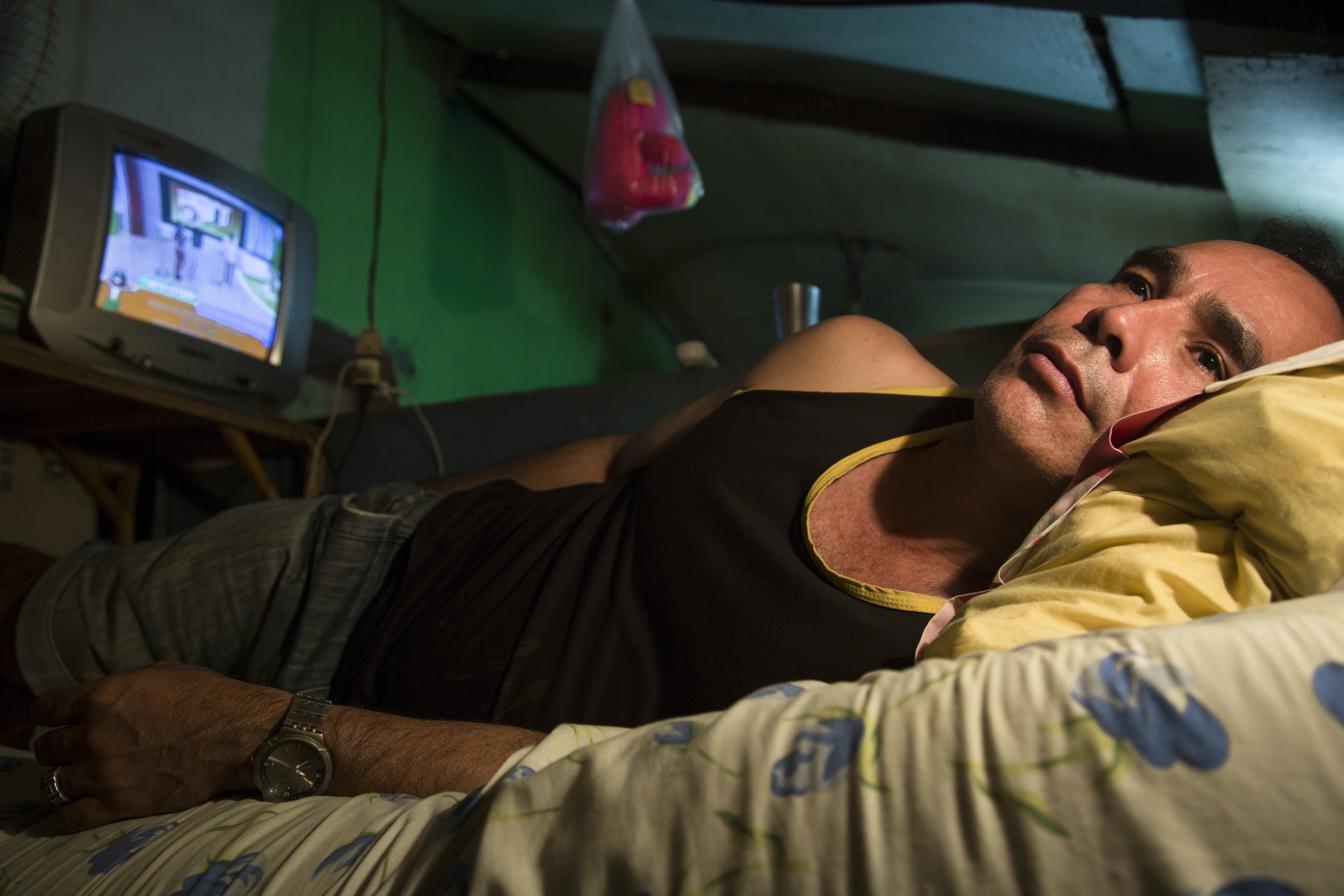
Amid these terrible circumstances, The Six teach classes, support church activities, study, maintain frequent correspondence with social organizations and have published books about their experiences and reflections.
“Our work here consists in supporting, guiding and teaching our fellow prisoners. Although we are in jail, we are still citizens,” said Acosta.
Return to Our Land
“Since we stepped into this horrible place, we have managed to stay strong. But we’re not the same people that we were before,” said Vera. “We’ve suffered irreparable damage. We’ve lost so much… relationships with our loved ones, our land. But we will continue fighting.”
Over a decade of imprisonment has not robbed The Six of their focus on their origins and the goal of their activism.
“We are campesinos. We work the land and that is what we want to go back to”.
Their case has been submitted to the Inter-American Court of Human Rights, while The Six remain in jail, waiting to see if it will be heard.
Author Bio:
William Costa is a freelance journalist based in Asunción, Paraguay.
Photographer Bio:
Santi Carneri is a freelance journalist, photographer and videographer who has been based in Paraguay since 2013. His work has been published in El País and The New York Times, among others.
